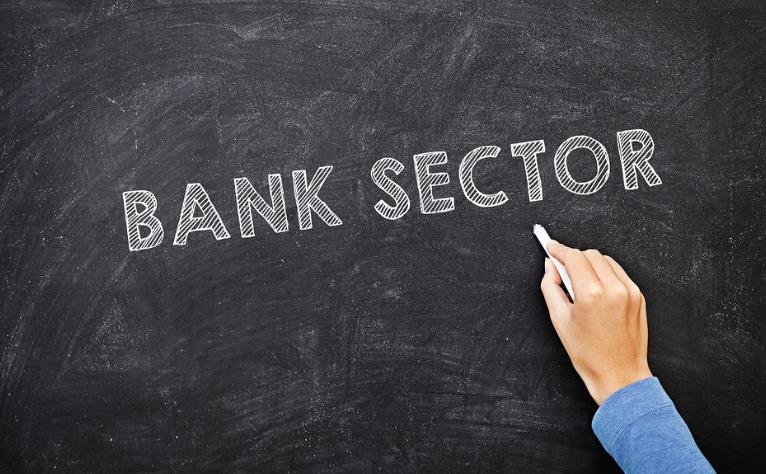The banking sector clean-up that took place in Ghana from 2017 to 2019 was a crucial intervention that helped the country to cope with the Covid-19 pandemic and the economic crisis that followed. This is the view of John Awuah, the Chief Executive Officer of the Ghana Association of Banks, who spoke on JoyNews’ PM Express on Thursday. He explained how the clean-up strengthened the resilience and the functionality of the banking sector, and enabled it to support the government’s fiscal and monetary policies.
The banking sector clean-up was a comprehensive reform that aimed to restore confidence and stability in the financial sector, which was plagued by weak governance, poor regulation, and high non-performing loans. The reform involved the revocation of the licenses of nine banks, 347 microfinance institutions, 15 savings and loans companies, and eight finance houses, as well as the recapitalisation of the remaining banks.

The reform was supervised by the former Finance Minister, Ken Ofori-Atta, and the Bank of Ghana, which is the central bank and the regulator of the financial sector. The reform cost the government about GH¢21 billion, which was funded by issuing bonds and raising taxes.
The Banking Sector Clean-Up: Why Was It Necessary?
The banking sector clean-up was necessary to prevent a systemic collapse of the financial sector, which would have had devastating consequences for the economy and the society. According to John Awuah, the banking sector was in a precarious situation before the clean-up, with many banks facing insolvency, liquidity, and solvency challenges.
He said that if the clean-up had not taken place, the banking sector would have been unable to withstand the shocks of the Covid-19 pandemic and the economic crisis, which would have resulted in massive losses, defaults, and closures. He added that the clean-up also protected the deposits and the savings of millions of customers, who would have otherwise lost their money and their livelihoods.
The Banking Sector Clean-Up: How Did It Help?
The banking sector clean-up helped to improve the performance and the outlook of the banking sector, which in turn helped to support the economy and the society during the Covid-19 pandemic and the economic crisis. John Awuah highlighted some of the benefits of the clean-up, such as:
- The clean-up increased the capital adequacy and the liquidity of the banks, which enabled them to absorb the losses and the risks caused by the pandemic and the crisis. He said that the banks were able to restructure and reschedule the loans of their customers, and to provide moratoriums and relief packages to ease their financial burdens.
- The clean-up enhanced the governance and the regulation of the banks, which improved their efficiency and their profitability. He said that the banks were able to reduce their operating costs, increase their income, and improve their asset quality. He also said that the banks were able to adopt digital and innovative solutions, such as mobile banking and agency banking, to serve their customers better and to reach the unbanked segments of the population.
- The clean-up boosted the confidence and the trust of the customers and the investors in the banking sector, which increased the demand and the supply of credit. He said that the banks were able to mobilise more deposits and to lend more to the productive sectors of the economy, such as agriculture, manufacturing, and services. He also said that the banks were able to attract more foreign and domestic investment, which enhanced their growth and their competitiveness.
The Banking Sector Clean-Up: What Are the Challenges?
The banking sector clean-up, despite its positive impact, also faced some challenges and criticisms, which John Awuah acknowledged and addressed. Some of the challenges and criticisms were:
- The clean-up was costly and burdensome for the government and the taxpayers, who had to bear the brunt of the fiscal intervention. He said that the government had to issue bonds and raise taxes to finance the clean-up, which increased the public debt and the fiscal deficit. He also said that the government had to deal with the legal and the social implications of the revocation of the licenses of the financial institutions, which affected their owners, their employees, and their customers.
- The clean-up was politically motivated and selective, targeting some of the financial institutions based on their affiliation or their ownership. He said that the clean-up was not influenced by any political agenda, but by the objective and the transparent criteria set by the Bank of Ghana. He also said that the clean-up was not discriminatory, but inclusive, as it affected all the financial institutions that failed to meet the minimum requirements and the standards of the regulator.
- The clean-up was incomplete and insufficient, leaving some of the financial institutions and some of the issues unresolved. He said that the clean-up was comprehensive and thorough, covering all the segments and the aspects of the financial sector. He also said that the clean-up was ongoing and continuous, as the Bank of Ghana was monitoring and supervising the banking sector to ensure its compliance and its improvement.







